

When entertaining important guests from Indonesia, it is important to be familiar with Indonesian culture and business etiquette.
This article introduces methods for entertaining Indonesians and popular Japanese cultural experiences among Indonesians.
We will guide you from the basic knowledge you need to know to specific methods of hospitality, so if you decide to entertain Indonesian guests in Japan, please refer to this guide.
About Indonesia

Capital and Population
Indonesia is located in Southeast Asia and shares borders with Malaysia, Singapore, and Papua New Guinea.
Indonesia is one of the largest countries in the world in terms of area and is a large country consisting of more than 17,000 islands.
Its total area is approximately 19 million square kilometers and its population exceeds 270 million.
The capital of Indonesia is Jakarta.
Jakarta is densely populated and known as a political, economic, and cultural center.
Indonesia is a member of ASEAN (Association of Southeast Asian Nations) and a growing economy.
Major industries include agriculture, manufacturing, mining, and tourism.
The abundance of natural resources is also of economic importance.
Culture and Religion

Indonesia is a country composed of people from diverse cultural backgrounds.
Each region and island has its own culture and language, and although Indonesian is the official language, English is also widely spoken.
Indonesia is a religiously diverse country, with Islam being the largest religion.
Indonesia is one of the most populous Muslim countries, with about 87% of the population being Muslim.
Islam in Indonesia has a relatively moderate form, with many people being Sunni Muslims.
Islamic values and practices have had a significant impact on Indonesian society and culture.
Other faiths include Hinduism, Buddhism, and Christianity.
Important Customs and Events

Indonesia has many traditional events and festivals.
It is very important etiquette to take into consideration holidays and national holidays that are important to the people with whom you do business.
Here are some of the major festivals in Indonesia.
Ido Le Fitri (Lebaran)
Id-ul-Fitr is the most important festival of Islam, celebrating the end of the month of Ramadan (fasting month).
Family and friends gather to prepare a special dish and enjoy the meal together.
People wear new clothes, worship at mosques, visit each other and exchange blessings.
Nyepi
Nyapi is a Hindu New Year festival in Bali.
On Nyapi Day, 24 hours of silence and stillness are observed.
People stay home, turn off lights, and refrain from music, dancing, and other activities.
This day in particular is considered a time for self-reflection and purification.
Kartaha Nu’u (Kartini Day)
Kartaha Nuyu is a day of celebration for the emancipation of women in Indonesia and is celebrated on April 21.
It pays tribute to Radha Kartaha Nuyu, a Javanese women’s liberation activist.
The importance of women’s empowerment and education will be emphasized.
Galungan
Galang is a Hindu festival in Bali on which the gods are said to visit the earth.
During the festival, Balinese houses are decorated and altars are set up.
People pray and enjoy traditional dances and music.
Kediri
Kediri is an Islamic festival on the island of Java that celebrates the birth of the Prophet Muhammad.
On this day, prayers are held at the mosque and the entire community shares a meal.
Charitable and community service activities will also be offered.
Basic Business Knowledge You Need to Know

Solidarity is very important in business.
It is said that in Indonesia, people choose jobs based on connection rather than compensation.
Once a month, many companies have employees’ families get together for picnics, mountain climbing, and other social gatherings, deepening family friendships.
Deepening personal relationships and building trust are very important in Indonesian business.
We recommend that this point be emphasized in entertainment and social gatherings.
Plan to invite your family, or even a couple, if you can.
If you are visiting Japan with your family, entertaining them with something they can enjoy together will make a good impression, and if your business partner is visiting Japan, gifts for their family will be greatly appreciated.
Hierarchy in Indonesia

Hou, ren, sou” is an important keyword for Japanese businessmen.
However, this rule does not apply in Indonesia.
Indonesians are basically a people who tell only good reports to their superiors.
If there is a problem, they tend not to discuss it directly with their superiors, but to resolve it among themselves and others in the same position, and report back only after they have succeeded.
So, unless my boss calls on me to do something, I put off reporting to the top.
If you are a business partner, it is very important to know the temperament of Indonesians in advance.
See also: 15 Common Sense Manners in Indonesia You Must Know
Indonesians never say NO?

Indonesians are said to be as reluctant to say no as the Japanese.
Many people tend to repeat the word “no” in a very unclear response because they are too concerned that the word “no” might hurt the other person.
This tendency is also seen in the Japanese, which means that neither party can give a clear answer to the other for a long time….
Therefore, it is recommended that you repeatedly check if it is really safe to do so if you are concerned.
And it is said that Indonesians do not express their emotions, good or bad, in a very public way.
So body language tends to be very sensitive.
For example, the gesture of talking with one’s hands on one’s hips expresses anger, and should be avoided when talking with a person, even unconsciously.
There is a risk of giving the impression of something intimidating.
And most Indonesians, who are known for not scolding their children very often, are not used to being scolded by others.
Never emotionally blame Indonesians, even when they make mistakes at work.
See also: Jakarta Supper, ” Indonesian Manners and Taboos.”
Indonesian Manners of Entertaining
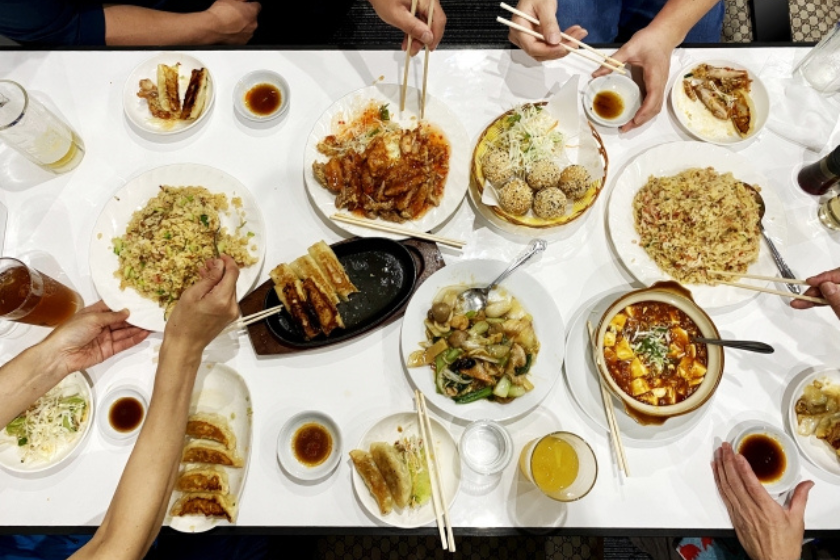
Attend as much as possible if invited.
Entertainment is very important to Indonesians.
If the other party has invited me, I will attend unless I have a good reason not to.
If you are unable to attend a meeting, politely decline so as not to hurt the other party’s reputation.
In addition, when planning entertainment, it is necessary to welcome the guests with sincere hospitality.
It is Indonesian manners to welcome visitors with the utmost hospitality, so it is necessary to plan entertainment carefully.
Halal meals are served.
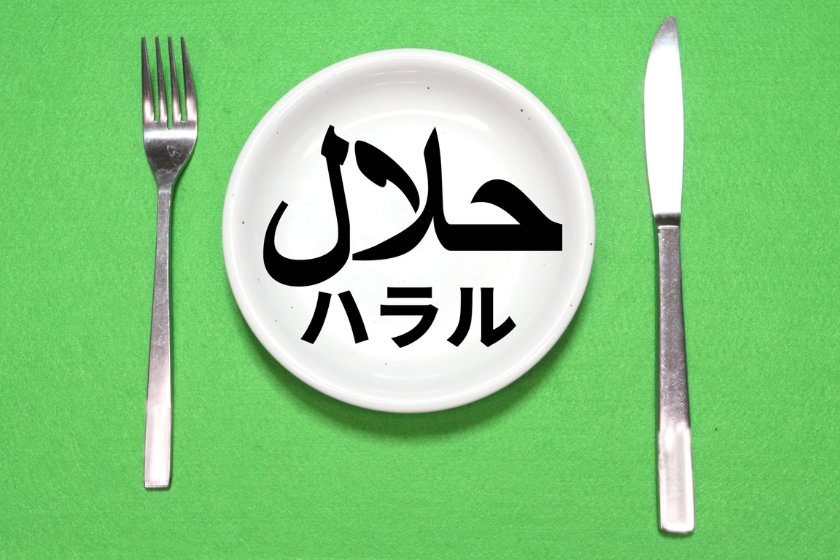
Most Indonesians are Muslim, so prepare Halal meals.
In the case of buffets, touching pork is also contraindicated, so it is necessary to be careful not to mix Halal food and regular dishes, not to mention food.
When having a reception dinner for lunch or dinner, we will prepare a Halal meal at a Halal-compliant restaurant.
Muslim Indonesians are also not allowed to drink alcohol, so consideration should be given to this.
Thus, it is important to take the religious background into consideration when entertaining Indonesians.
Reference: Nihon Keizai Shimbun, ” Indonesia’s Looming Halal Mandate Urges Retail and Food Service Response ” (Japanese only)
There are certain colors to avoid on party invitations.
When making invitations to Chinese Indonesians, pay attention to the colors.
Avoid white, black, and blue paper.
This is because among Chinese Indonesians, this color is considered to represent sadness.
Conversely, red and pink are pleasing colors for invitations.
Red and pink are festive colors, and as in China, it is customary to wrap gifts in red and wrap them with a golden ribbon.
If you are inviting people to a glamorous get-together or celebration, it is especially important to pay attention to the color.
Souvenir Customs

Indonesia, like Japan, has a deep souvenir culture.
Souvenirs are important not only for relatives and friends and acquaintances, but also for business associates.
Souvenirs for greetings and gifts for people at work are customary as in Japan, so it is necessary to bring a souvenir for the first meeting.
For the entire workplace, small portions of sweets that are easy to share are popular, and for personal gifts, gifts that are uniquely Japanese are very much appreciated.
Also, don’t be surprised when your child innocently demands, “Give me a souvenir! and may innocently demand it, so do not be surprised.
This is very common in Indonesia, so if you are coming to Japan with your children, we recommend that you be sure to prepare souvenirs for them as well.
Entertainment is also respectful of superiors.
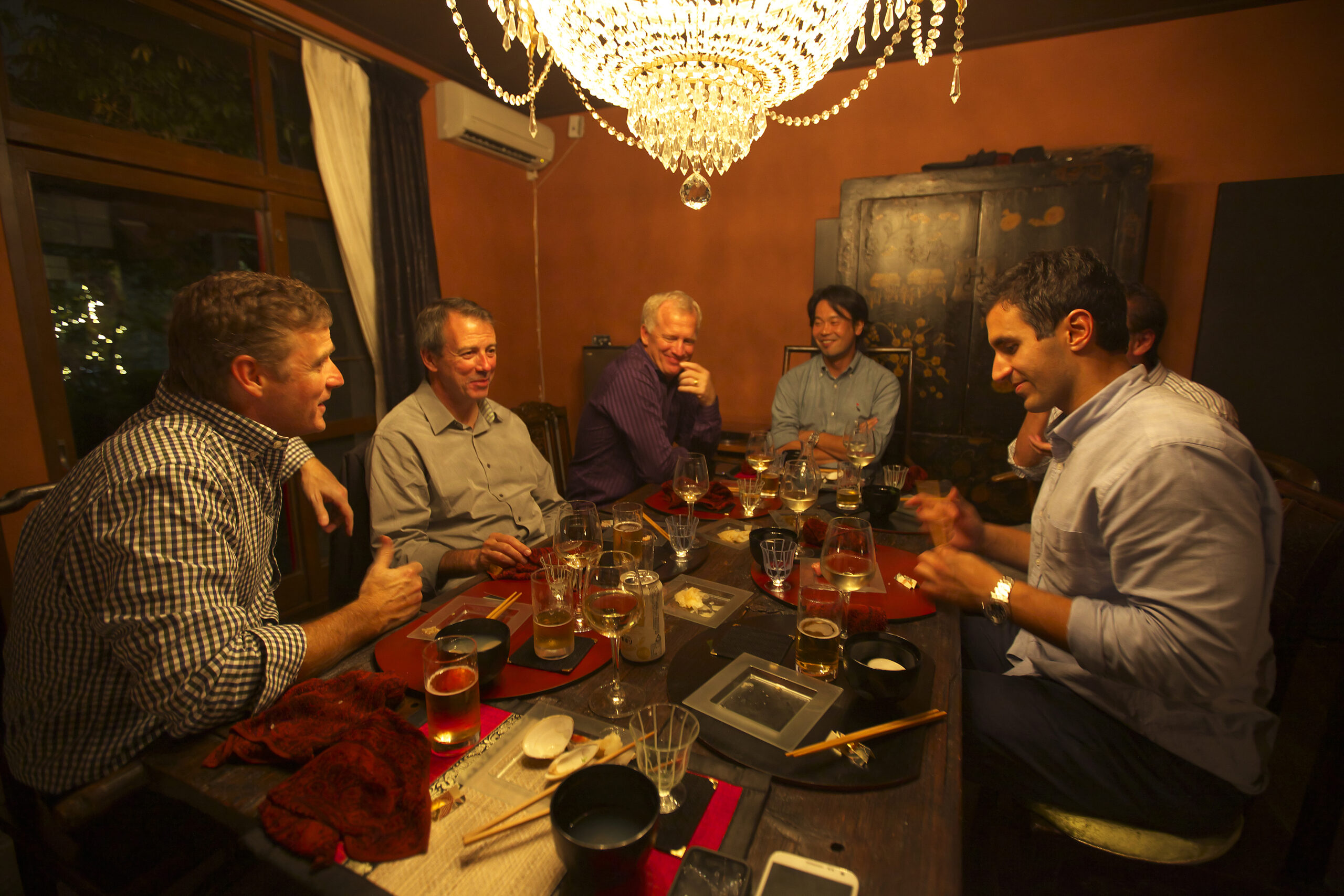
In Indonesia, hierarchical relationships are very strict, so respect for superiors is very important, even when entertaining.
Be sure to show exceptional respect, especially to the guest of honor.
It is also important to arrange for the guest of honor to be the first to eat at buffet-style receptions.
If the guest of honor is going to sit down and choose a meal, go with him or her to get the food and explain each dish.
Anyway, respect for superiors is even more important than in Japan, so be sure to treat them with the utmost courtesy at business entertainment and get-togethers.
Japanese cultural experiences for entertaining Indonesians
geisha
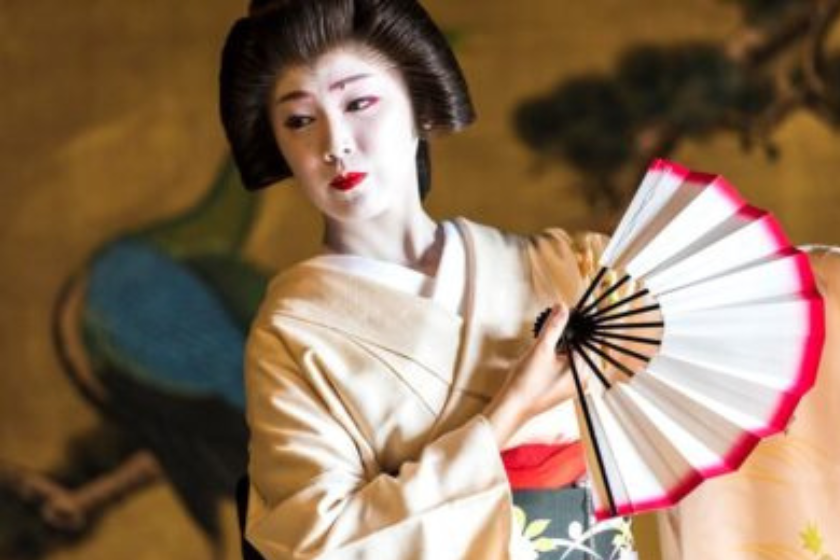
Geishas are experts in entertainment as well as Japanese cultural traditions.
Geishas are also special when it comes to the etiquette skills needed when considering entertaining superiors.
Therefore, geishas are recommended for entertaining Indonesians, who have a strict hierarchical relationship.
Geisha’s meticulous hospitality skills allow them to plan entertainment without rudeness and to take on the challenge of dealing with special guests.
Of course, we do not recommend alcohol when entertaining Muslims, and the geisha will make sure that you can fully enjoy yourself without alcohol.
Even if there is no alcohol, you will have a warm and memorable reception if you enjoy the beauty of Japan while appreciating Japanese dance and having a good time playing tea with geisha.
Tea ceremony, Japanese sweets experience
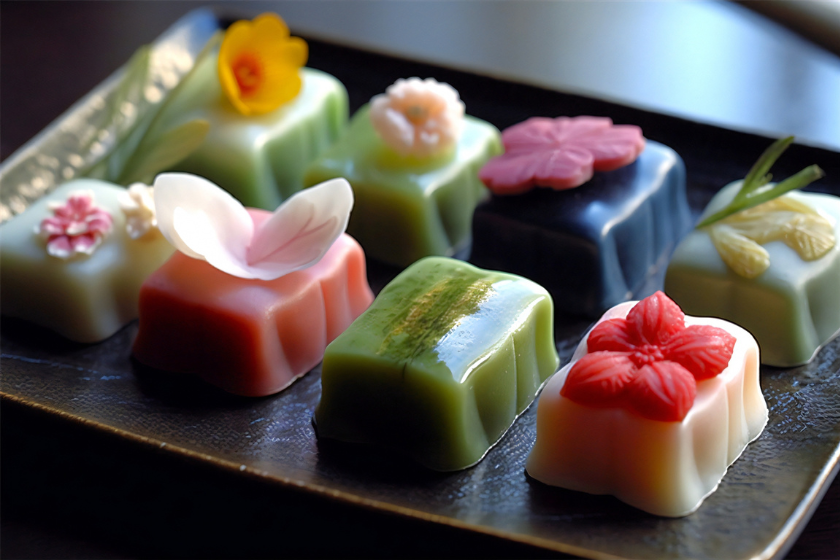
For entertaining Indonesians, many of whom are Muslim, with a Japanese cultural experience, we recommend the tea ceremony.
Even in the Islamic world, tea and coffee are important elements of hospitality for guests, so the meaning of hospitality in the tea ceremony is as common as it is in the Japanese.
Since many people are not able to prepare a table for drinking, it is important to create a space where important conversations can take place in the relaxed atmosphere of a tea ceremony.
Also, since many people in Japan have a sweet tooth, Japanese sweets will be appreciated.
Recommended related article: [Practice by expatriates] Omotenashi with Tea Ceremony and Kimono
Tea ceremony, calligraphy, flower arrangement
houseboat

How about renting a Yakatabune for Tokyo cruising?
This is one of Motenas Japan’s most popular special events that allow customers to experience the “fun” of the event.
We have prepared traditional Japanese entertainment such as geisha and swordsmiths on our yakatabune, so that you can enjoy Japanese culture while viewing Tokyo from the river in a stylish way.
You can also enjoy a special experience such as cruising on a houseboat with a tea ceremony experience while enjoying matcha green tea.
cherry blossom viewing
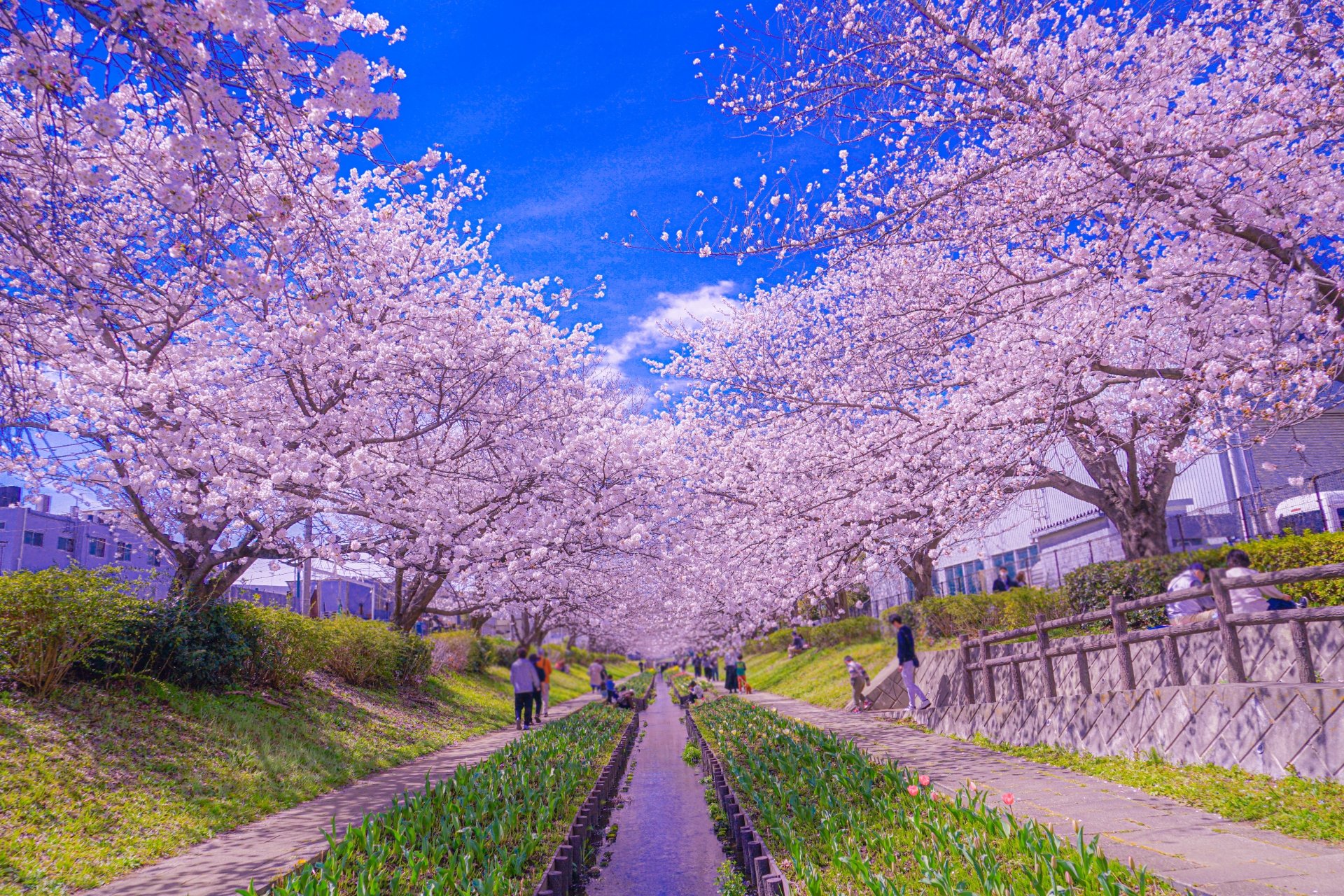
Indonesians love picnics.
If your partner is staying in Japan during the spring cherry blossom season, hanami (cherry blossom viewing) is still recommended.
We are sure that your visit to Tokyo will be a memorable one, as you will be able to enjoy the cherry blossoms to the fullest, including sightseeing in Tokyo while viewing cherry blossoms.
If you are entertaining a superior, it would be a good idea to offer him or her a Japanese cultural experience and a meal in a private room with beautiful cherry blossoms.
It is also recommended to prepare for entertainment under the cherry blossoms a custom-made performance of a popular traditional art such as Kabuki, Japanese dance, or Noh theater, for an emotional experience.
Recommended Related Articles: [History and Japanese Culture of Hanami] Cherry Blossoms and Popular Spots Loved by Foreigners with English Examples
Let’s take a thorough look at the appeal of Japanese bento that foreigners enjoy.
ninja (persons in feudal Japan who used ninja weapons, assassins, etc.)
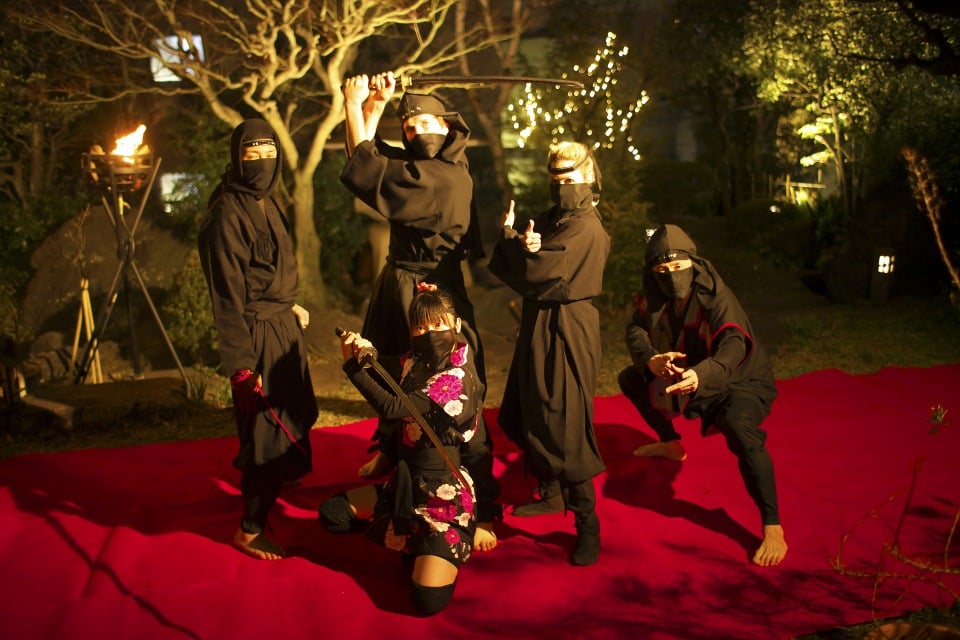
How about welcoming Indonesians who are visiting Japan with their families with Ninja?
This is a project that has been welcomed by a certain royal family during their private visit to Japan, and visitors can enjoy Japan to the fullest with ninja as the keyword, with ninja suddenly appearing and learning how to throw shuriken directly from ninja.
And Ninja is also a great choice for large get-togethers and celebrations.
The entertainment by ninjas is so spectacular and dynamic that it is well worth seeing, and the exotic, yet gorgeous stage lighting and sound effects that are typical of Japan will make it a high-impact project.
Ninja can be enjoyed in a variety of ways and is still perfect for entertaining special people and for people of all ages.
Recommended Related Articles:What is the Japanese symbol of the Ninja? Ninja Experience and Entertainment
summary

How was it? In this article, we introduced business manners and hospitality tips for entertaining Indonesian guests.
Indonesia is a predominantly Muslim country, but also has a large Chinese Indonesian population.
In both cases, it is important to understand the culture and customs, and to treat people with good manners and no rudeness.
Indonesian business etiquette is also characterized by respect for superiors and strict hierarchical relationships, so take this into consideration when welcoming them.
With these points in mind, you can plan a special hospitality experience while incorporating Japanese culture.
Motenas Japan is always available for consultation, so please contact us if you have any problems with Indonesian entertainment.

After graduating from university, I worked as a Systems Engineer (SE) at Reuters Japan. Later, I spent five years as a Systems Manager at Reuters Singapore. After that, I studied business administration at a business school in the Netherlands and joined Hitachi Ltd. At Hitachi, I was responsible for new business development, promoting new projects in China and investment schemes in emerging countries. After working for 11 years, I started running Motenas Japan, offering Japanese cultural experiences to foreigners under the motto “Bringing Japan and the world closer together.”


